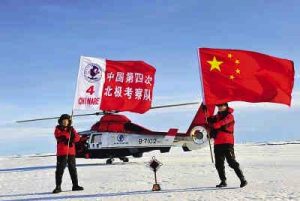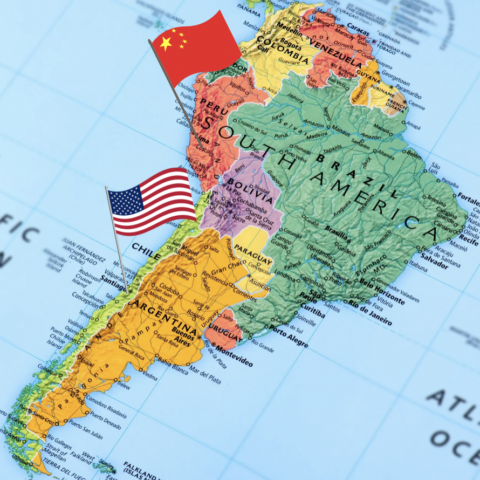By: Megan White
On the outermost surface, King David, Daniel LaRusso, and Norway do not appear to have much in common. One is a biblical ruler, another is a martial arts enthusiast, and another is a mid-sized Scandinavian nation. One is from Ancient Israel, one is from New Jersey, and one is from, well, Norway.
In terms of their most outright and upfront characteristics, the three could not be more different. At a slightly deeper level, though, they share one thing: each played the role of the underdog.
As a young man, the future King David brought down the mighty beast Goliath with nothing but a sword and a slingshot. Daniel LaRusso, otherwise known as the Karate Kid, sprang into crane stance with an injured knee to kick a bully in the face and win the championship. And Norway took on a goliathan bully of its own: China.
It all started in October 2010. The Oslo-based Nobel committee had just announced that Liu Xiaobo, a Chinese dissident, would receive the Nobel peace prize.
Xiaobo, who served as President of the Independent Chinese PEN Center and “MinZhuZhongGuo” (Democratic China) magazine, had been sentenced to 11 years’ imprisonment and two years’ deprivation of political rights in 2009, charged with “inciting subversion of state power.” He was therefore unable to travel to Oslo to accept his award.
This minor detail did not derail the Nobel committee, who, in an act of defiance, presented the prize to an empty chair.
China was not pleased.
Almost immediately, the Chinese government suspended talks on a free trade agreement, barred imports of Norwegian salmon, and effectively cut off relations from the Nobel host country.
But Beijing may have overestimated its clout. Although China’s economy is approximately 15 times the size of Norway’s, it accounts for less than two percent of Norway’s exports. Not to mention that the countries are 4,000 miles apart.
But the story does not end here. In order to tap into the ample natural resources and security advantages of the North Pole, China has been pushing to join the Arctic Council since 2008. Securing Council membership would be no small accomplishment: in addition to its fisheries and minerals, the region contains 10 percent of the world’s undiscovered oil reserves and 30 percent of its undiscovered natural gas reserves. Perhaps most importantly, the melting ice caps will eventually clear the way for a true modern-day Northwest Passage, a quick and easy trade route between Europe and Asia.
Although it has no Arctic land holdings, China believes that its status as a leader in research and an emerging global power ought to be enough to earn it a spot. It only needs to secure the vote of the eight permanent members of the Council, which include the United States, Canada, Denmark, Iceland, Russia, Sweden, Finland, and (here’s the catch) Norway.
Officially, the two governments have yet to comment on the issue. In fact, Norway has shown enthusiasm towards expanding the Council. Unofficially though, Norway will be a little more than reluctant to agree to China’s application to be a permanent Council member, according to “Aftenposten,” Norway’s top newspaper, citing an unnamed high-level diplomatic source.
“I can neither confirm nor deny this story, but I can say bilateral contacts between Norway and China are at a low level,” explained Karsten Klepsvik, the senior Arctic official at the Norwegian Ministry of Foreign Affairs.
The Arctic Council will reach its decision on membership applications in 2013, leaving China a year to thaw its relations with Norway. In the meantime, Norway’s bold stand could carry implications for the future of how China treats its smaller global neighbors. If it wishes to continue its expansion toward international superpower status in a world marked by globalization and rapid communication, China must pursue the diplomatic route. Although on the surface, Norway appeared distant and insignificant to China’s interests, the Scandinavian nation currently holds a great deal of influence over China’s political and economic future.
Never underestimate the will of the underdog.

